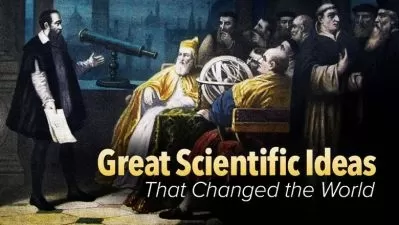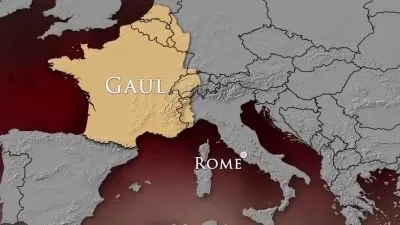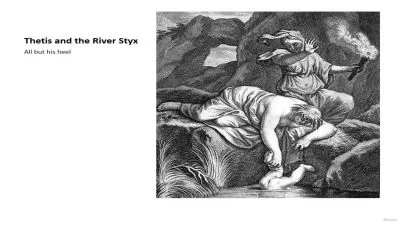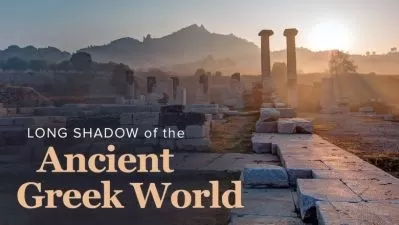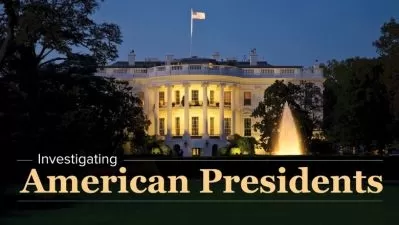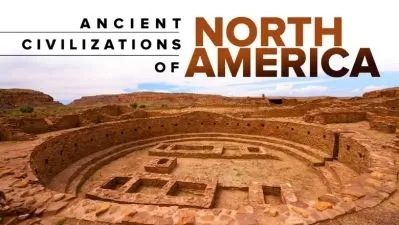Origins and Ideologies of the American Revolution
Peter C. Mancall
25:00:18
Description
The years 1760–1800 rocked the Western world. These were the years when colonists on the eastern fringes of a continent converted Enlightenment thought first into action, then into government. Astonishing the world leaders of the day, they defied and broke away from their mother country, and then fashioned a republic capable of sustaining itself generation after generation.
Why this happened and how the colonists did it is the subject of Professor Peter C. Mancall's 48 lectures. It is a story of immense importance and rich discoveries.
The American Revolution began when British colonists first questioned the intrusions of Great Britain into their economic progress and civil lives. It erupted into armed conflict in 1775, but it did not end with the peace treaty of 1783. The Americans had yet to craft a government that brought into being new ways for citizens to relate to their government and for a government to relate to its nation.
Watch the Rise of Representative Government
Presenting this momentous period is Professor Mancall, professor of history and anthropology at the University of Southern California. Throughout this course Professor Mancall does far more than recount events. He illuminates the words of the very people who struggled with the crosscurrents of those times. Professor Mancall brings to life both the famous and little-remembered colonists who were caught up in the debates over rights and power, liberties and empire. Because he presents original source materials as well as how events were reported and interpreted, we more readily understand the evolution of ideas, the competing pressures, and the misunderstandings.
Professor Mancall lays the foundation of the story by elucidating the roots of English colonization and the successes of the colonies, then introducing the explosive matter of who was to pay for the French and Indian War of 1754–63. He reads from the fiery 1760s arguments of the Boston lawyer James Otis, who wrote, "The very act of taxing exercised over those who are not represented appears to me to be depriving them of one of their most essential rights as freemen."
He reads from the reasoned pamphlets of John Dickinson, who worried "whether Parliament can legally take money out of our pockets without our consent. If they can, our boast of liberty is but ... a sound." He brings us into the life and views of the brilliant Bostonian Mercy Otis Warren, who fashioned one of the first histories of the American Revolution from her own observations.
And of course, he brings us closer to the extraordinary minds leading the colonies throughout the political tumult, including Benjamin Franklin, George Washington, John Adams, Thomas Jefferson, James Madison, and Alexander Hamilton.
In Professor Mancall's lectures you learn the British side as well. You'll hear the opinions of loyalist Massachusetts Governor Thomas Hutchinson. And you'll hear the words of King George III, who declared himself "still hoping that my people in America would have discerned the traitorous views of their leaders and have been convinced that to be a subject of Great Britain, with all its consequences, is to be the freest member of any civil society in the known world."
Professor Mancall shines when revealing how ideas were formed in the minds of those affected by events, and how their ideas inspired so much that is familiar to us today.
Independence Was Just the Beginning
In achieving freedom from Great Britain, the colonists traded one set of problems for another. No country the size of the United States had ever successfully established a republic. Indeed, in the 1780s, the young nation could not pay its debts or craft an effective foreign policy. European monarchies expected imminent collapse. Instead, 55 men wrote a constitution for a national government, then asked for approval from the people. Debate raged, but owing to a pledge to add a list of guaranteed liberties, the United States Constitution became the nation's supreme law.
Still, no one knew whether the new governmental structure would work. It seemed to be an untried collection of compromises, checks, and balances. But the new country began auspiciously, led by the most revered American of the age, George Washington.
With Washington's voluntary exit from the political stage in 1796, political leadership fell to two Revolutionary comrades who developed different views for the young country's proper course. John Adams was devoted to a strong national government—Thomas Jefferson to individual liberties. Each was backed by passionate followers and believed he was working for the principles of 1775–76.
In the end, what may have done most to save the country from catastrophic failure was that Adams, though discouraged and angry after losing in a free election, passed power peaceably to Jefferson who, rather than seek political revenge, carried on much of what had been built up since the Constitution's inception.
The Meaning of the Revolution
The American Revolution was one of the great turning points in Western civilization. Anglo-American colonists, long loyal to the British monarch, thought that governments were meant to serve people rather than the other way around, and they struggled to establish such a government for themselves. They also struggled among themselves over how that government would relate to citizens and to their respective states, and how the government would be both powerful enough to do good for the people yet not so powerful as to abuse natural liberties.
Professor Mancall delves into all this. His course contains separate lectures on how the Revolution affected women, Native Americans, African Americans, and the balance of rich and poor. As Professor Mancall notes, the words, "All men are created equal" set in motion ideas and movements that went beyond the simple thought that a colonist is the equal of a Briton; they kindled a flame that began to light the world.
Why the Revolution Worked
As Professor Mancall makes clear, the success of the Revolution was never assured. The leading resistors were fallible men, and the current of events so swirled about them that it could easily have swept them aside. Yet the Revolution of 1760–1800 did work.
One reason was effective patriot propaganda. Paul Revere deftly crafted an illustration of the Boston Massacre that inflamed Americans against British soldiers. Thomas Paine brilliantly expressed the rationale for independence in his pamphlet Common Sense.
Another reason for American success was the flawed strategy and tactics of the British. During 1776 to 1778, British and Hessian soldiers so plundered families that Americans resolved the more firmly to separate from Britain. Even in the South where slaveholders might have worried over the "equality" language of the Declaration, the British discovered most Americans thought of themselves as American rather than British.
Then the Americans realized they needed a new constitution and wrote one so well that it has remained virtually intact after 220 years.
The election of 1800 placed a capstone on the success of the Revolution. Against a backdrop a French Revolution sinking into military dictatorship, Adams stepped aside. Jefferson understood the significance of the moment and asserted that despite political differences of party, nothing was more important than the continuation of the Revolutionary ideas of liberty, citizens' rights, and responsible self-government.
More details
User Reviews
Rating
Peter C. Mancall
Instructor's CoursesDr. Peter C. Mancall is Professor of History and Anthropology at the University of Southern California and Director of the USC-Huntington Early Modern Studies Institute. He earned his A.B. from Oberlin College and his master's degree and Ph.D. from Harvard University. Before taking his position at USC, he held teaching positions at the University of Kansas, the University College Galway in Ireland, and Harvard University. Professor Mancall received two teaching excellence awards at the University of Kansas and in 2004 was named a Gamma Sigma Alpha Professor of the Year by the University of Southern California. Professor Mancall is the author of four books and editor of Volume I of the Encyclopedia of American History, chosen as a best reference book series by Booklist, Library Journal, and Choice magazine. Dr. Mancall's work has been featured on National Public Radio's All Things Considered and in the Chronicle of Higher Education. His research has been supported by the National Endowment for the Humanities, the National Science Foundation, and the American Philosophical Society.

The Great Courses
View courses The Great Courses- language english
- Training sessions 49
- duration 25:00:18
- Release Date 2023/05/10






